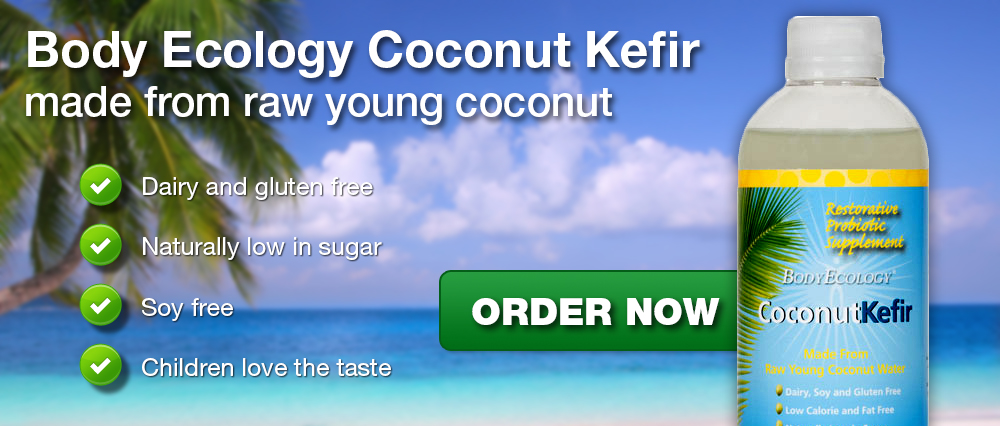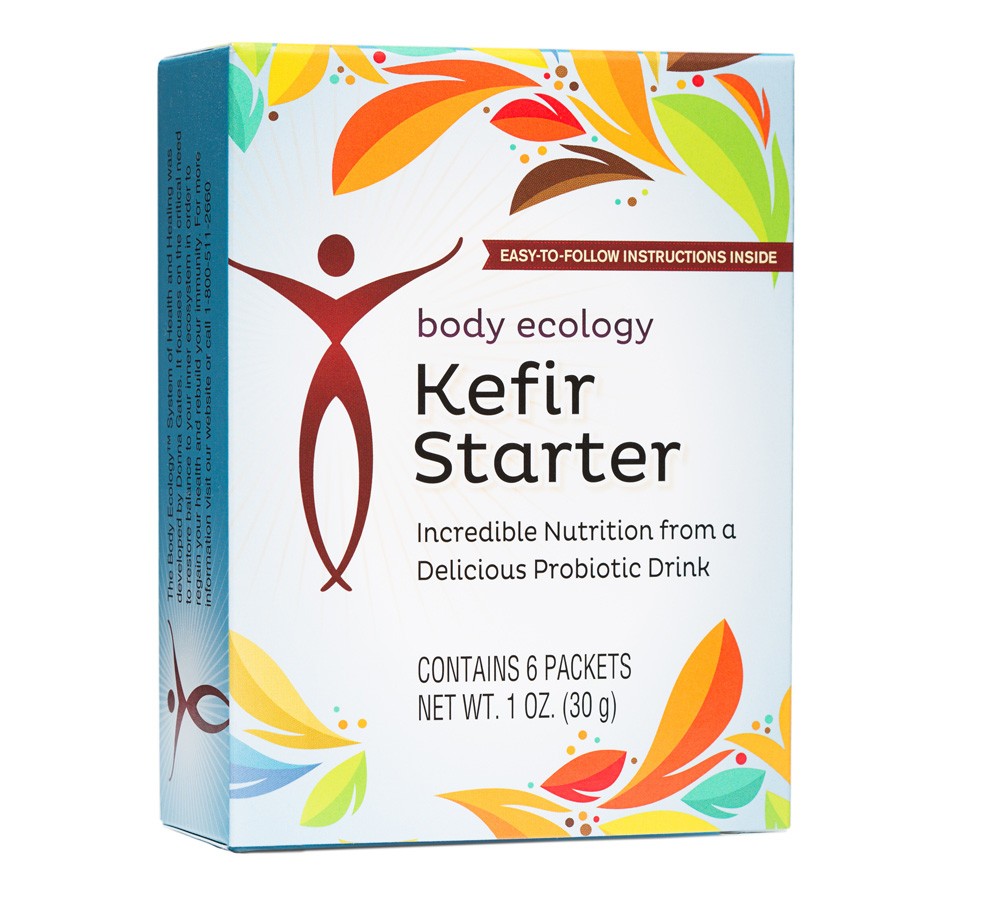What is Kefir?
Kefir is a cultured, creamy product with amazing health attributes.
Kefir’s tart and refreshing flavor is similar to a drinking-style yogurt, but it contains beneficial yeast as well as friendly ‘probiotic’ bacteria found in yogurt. The naturally occurring bacteria and yeast in kefir combine symbiotically to give superior health benefits when consumed regularly. It is loaded with valuable vitamins and minerals and contains easily digestible complete proteins.
For the lactose intolerant, kefir’s abundance of beneficial yeast and bacteria provide lactase, an enzyme which consumes most of the lactose left after the culturing process.
How is Kefir Made?
Kefir can be made from any type of milk, cow, goat or sheep, coconut, rice or soy. Although it is slightly mucous forming, the mucous has a “clean” quality to it that creates ideal conditions in the digestive tract for the colonization of friendly bacteria.
Kefir is made from gelatinous white or yellow particles called “grains.” This makes kefir unique, as no other milk culture forms grains. These grains contain the bacteria/yeast mixture clumped together with casein (milk proteins) and complex sugars. They look like pieces of coral or small clumps of cauliflower and range from the size of a grain of wheat to that of a hazelnut. Some of the grains have been known to grow in large flat sheets that can be big enough to cover your hand!. The grains ferment the milk, incorporating their friendly organisms to create the cultured product. The grains are then removed with a strainer before consumption of the kefir and added to a new batch of milk.
The 10th edition Body Ecology Diet is now available!
The Body Ecology Diet is a national best seller that’s ‘must’ reading for people with candidiasis (yeast conditions), chronic fatigue syndrome, cancer, AIDS, food allergies, or digestive disorders — or anyone simply seeking a key to good health. The Body Ecology Diet shows you how healing can be achieved by restoring your body’s inner ecosystem.
Order Here
-
Sein Sein Yi
-
Leslie
-
Mad Dog
-
sagau
-
cinnamon022
-
Monica


